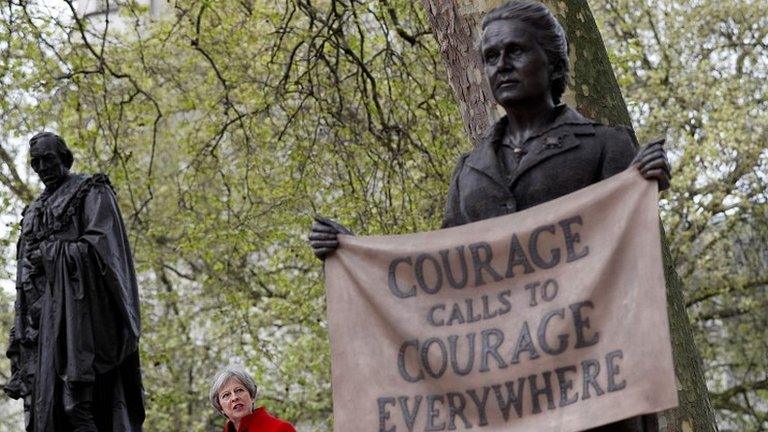Hidden heroines: Could Betty Campbell win statue vote?
- Published
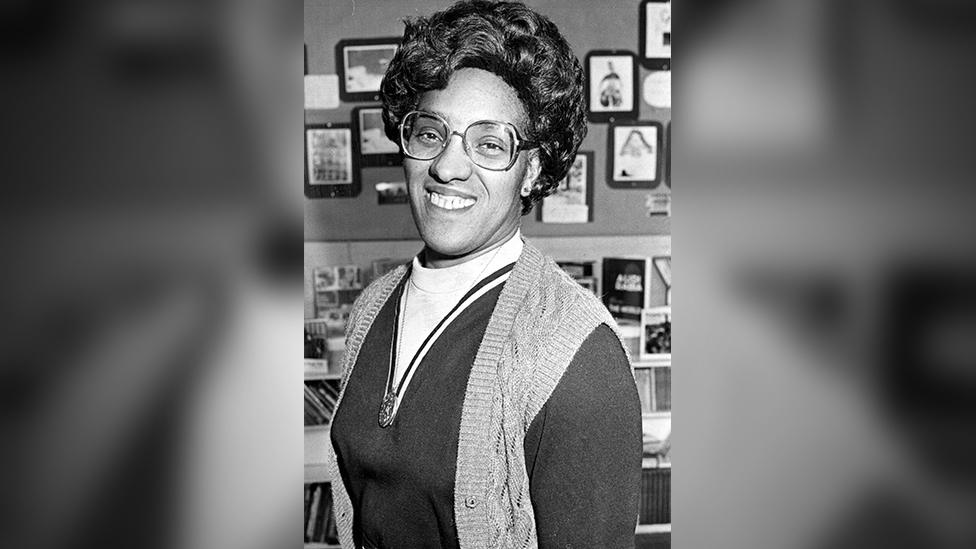
Betty Campbell proved wrong those who told her a working-class black girl could never succeed
Cardiff's first statue of a named woman forgotten to history is to be decided by a public vote.
Five women have been shortlisted for the artwork which will be placed outside BBC Wales' new headquarters at Central Square.
The women, none of whom are still living, are Cranogwen, Lady Rhondda, Elizabeth Andrews, Elaine Morgan and Betty Campbell.
BBC Wales is profiling the lives of each of these women and the public can vote online until 21:30 GMT on Wednesday.
Here we look at the life of Betty Campbell.
Betty Campbell was told a working-class black girl could never succeed, but she proved her doubters wrong in the most inspirational way.
She became Wales' first black head teacher. Throughout her life, she championed her nation's multicultural heritage.
No wonder Nelson Mandela sought her out on his only visit to Wales.
Born in Butetown in 1934, Betty was raised in the poverty of Tiger Bay. Her mother struggled to make ends meet after her father was killed in World War Two.
Betty loved the escapism of reading - particularly the Enid Blyton tales of girls' boarding schools. Winning a scholarship to Lady Margaret High School for Girls in Cardiff brought her dreams of an idyllic academic environment within reach.
Here, she studied alongside mostly white, middle-class girls but when she expressed the same ambitions as her classmates, she was crushed.
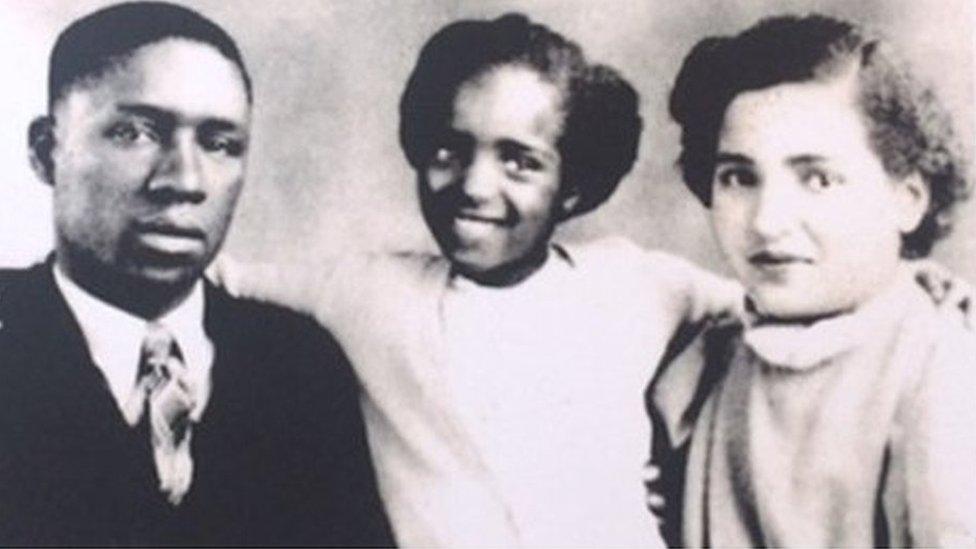
Betty Campbell pictured with her parents Simon and Honora
Always near the top of the class, Betty told her head teacher she too would like to teach, but the response was: "Oh my dear, the problems would be insurmountable."
Those words devastated her.
"I went back to my desk and I cried," Campbell once recalled. "That was the first time I ever cried in school. But it made me more determined; I was going to be a teacher by hook or by crook."
She overcame setbacks and racism to pursue her goal. In 1960 she was one of six female students at Cardiff Teacher Training College which was admitting women for the first time. Juggling a young family, she qualified as a teacher.
When a teaching job became available in Butetown, Betty felt it was made for her - but she faced hostility from some parents.
"They hadn't seen a black teacher before," she said. "It was as if you could do a job, but if you're black you weren't quite as good."
Yet again she defied her detractors by becoming the first black head teacher in Wales.
She had made history. And now she wanted her pupils to know their history.
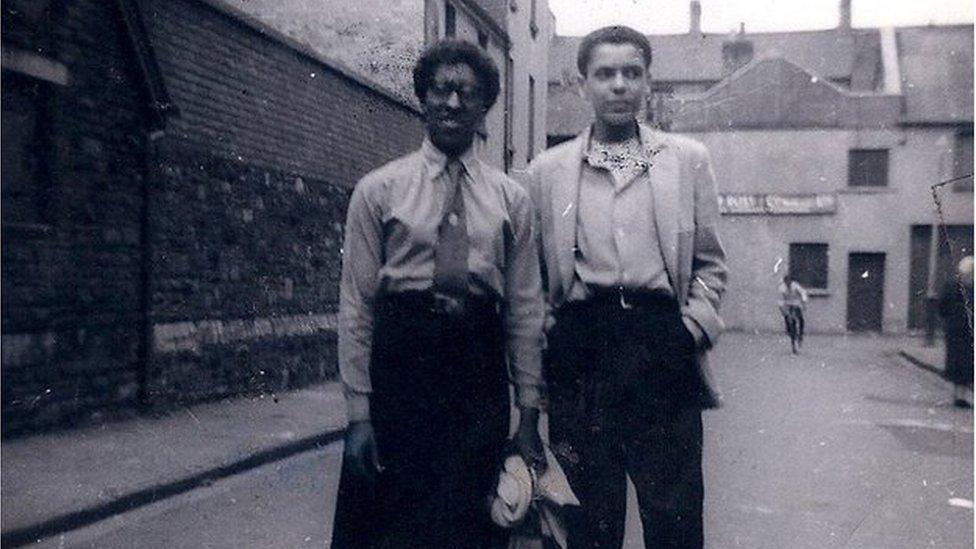
Betty (then Johnson) on the street she lived with friend Neil Sinclair, a writer and historian who also still lives in Butetown
Inspired by a trip to America, where she learned the story of former slave and abolitionist Harriet Tubman and other civil rights activists, Betty put black culture on her Cardiff curriculum.
In a speech she later made at the Welsh assembly, she explained: "I was determined that I was going to become one of those people and enhance the black spirit, black culture as much as I could."
Her pupils learned about the positive contribution to British society by people of colour. She also helped create Black History Month.
As she once explained: "I looked at black history, the Caribbean, Africa, and slavery and the effects. There were people that said: 'You should not be teaching that'. Why not? It happened. Children should be made aware."
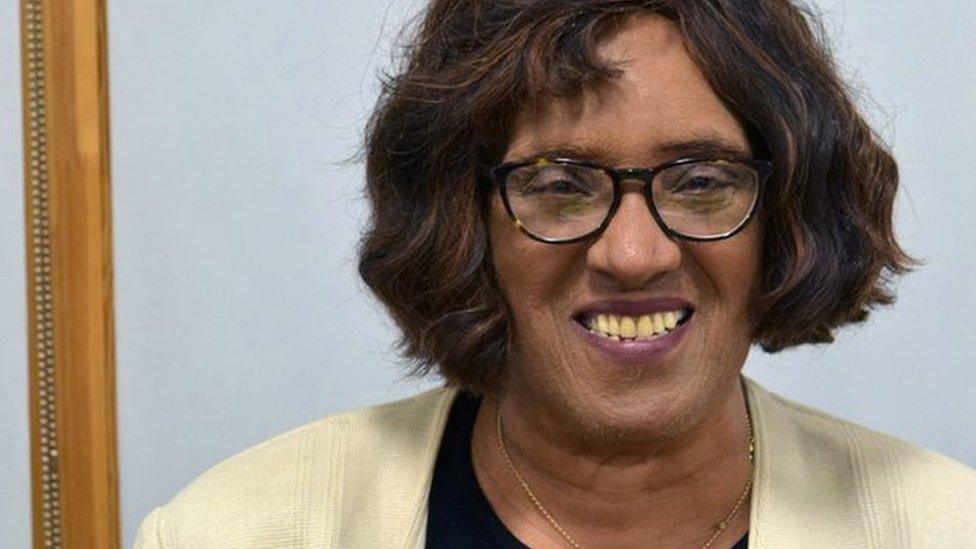
Betty Campbell taught at Mount Stuart in Butetown for 28 years
Betty's fame spread beyond Wales as her school became a template for multicultural education. Her influence on public life grew when she became a member of the Home Office's race advisory committee and a member of the Commission for Racial Equality.
She also proved a passionate advocate for the people of Butetown as a councillor, as the community faced significant change through the development of Cardiff Bay.
Up until her death in October 2017, Betty remained committed to the heritage of Butetown and the importance of its multiculturalism.
"In our own unique way we were establishing an area where religion and colour didn't matter - we all respected each other as people," she once said.
No-one fought harder to celebrate Wales' diversity than Betty Campbell.
- Published9 January 2019
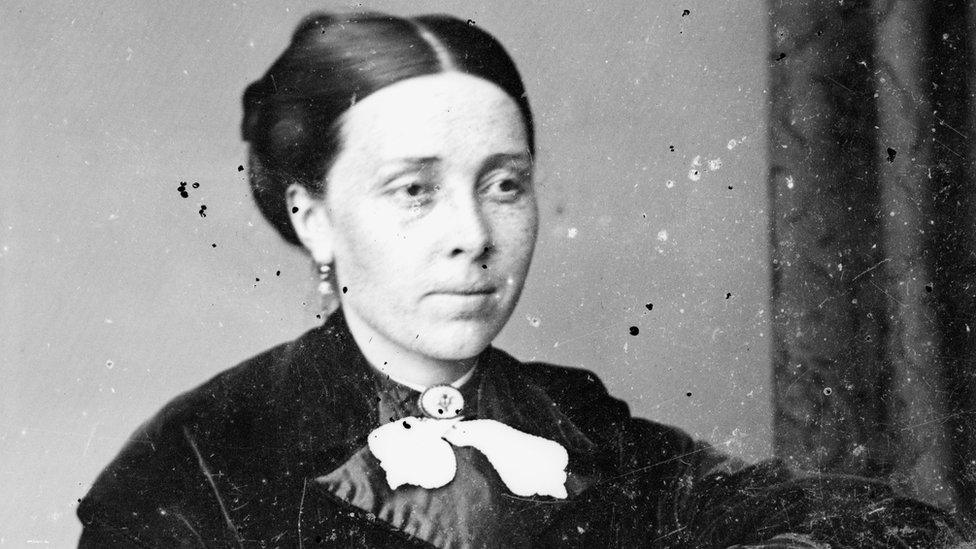
- Published7 January 2019
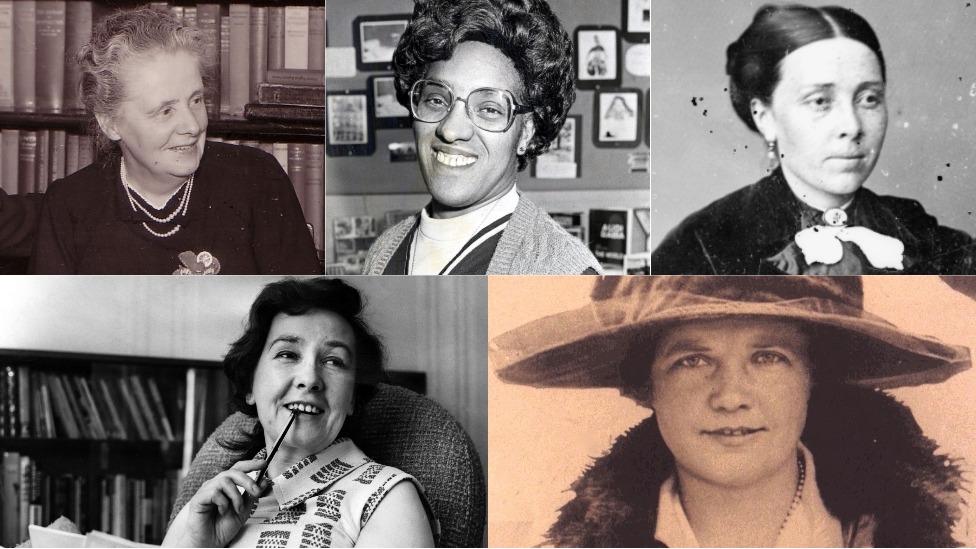
- Published7 January 2019
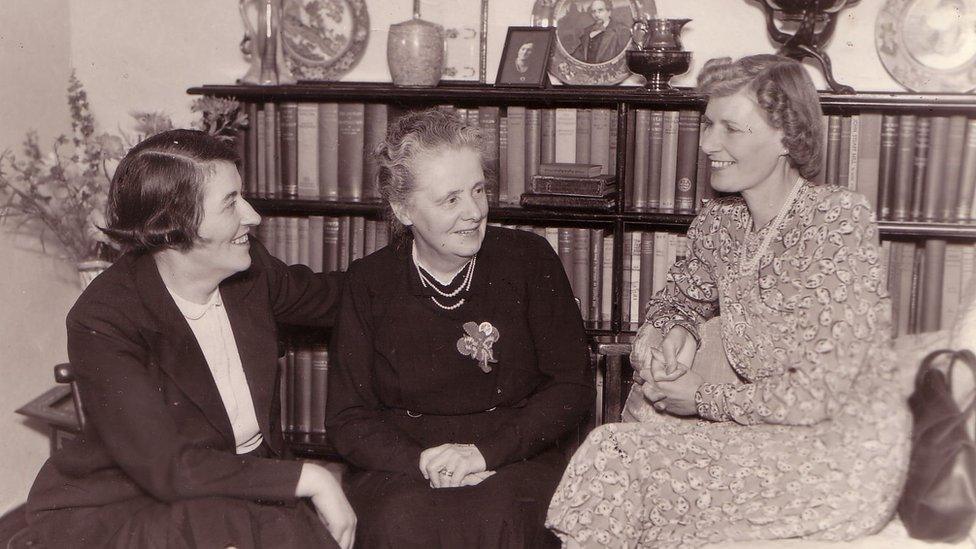
- Published14 October 2017
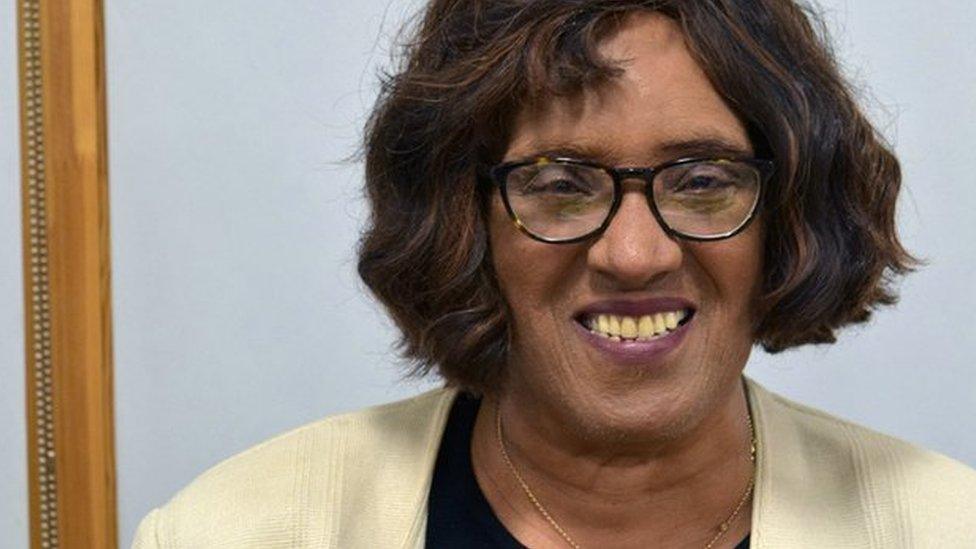
- Published24 April 2018
